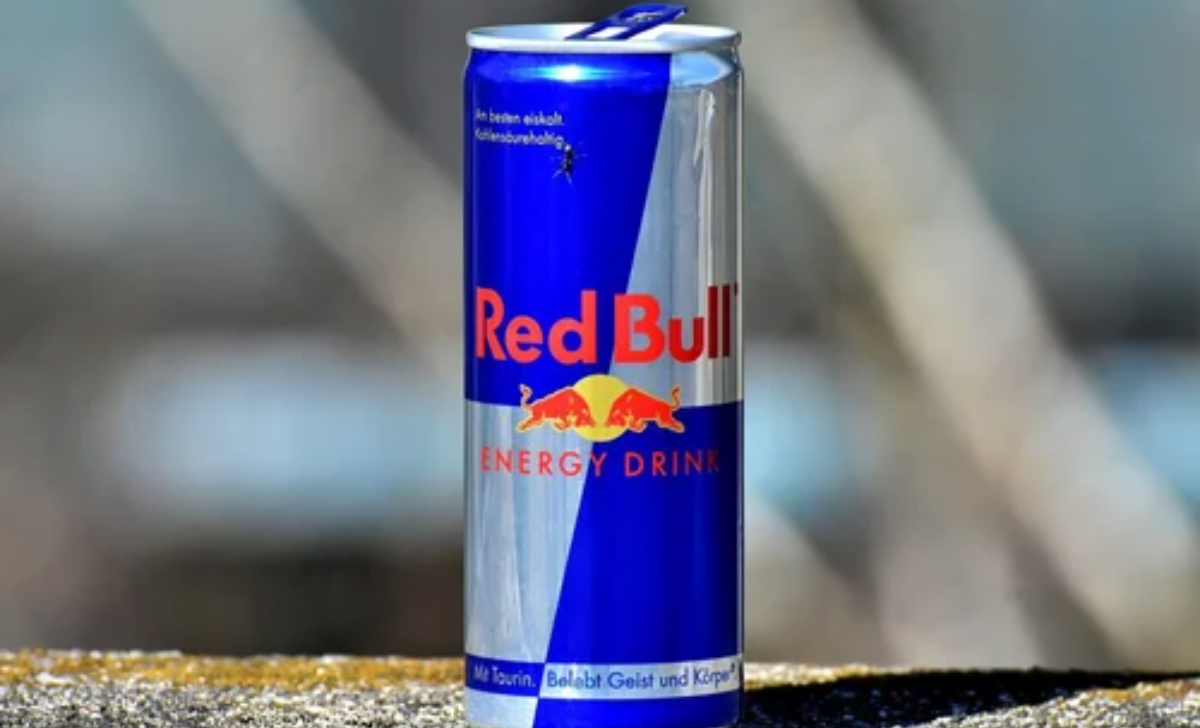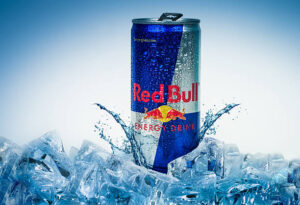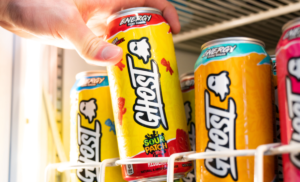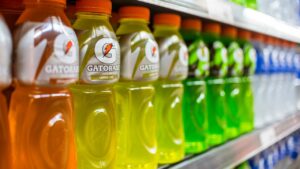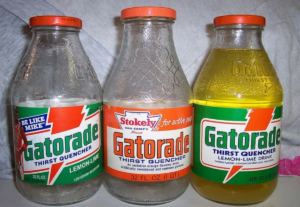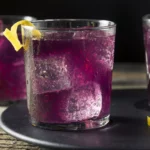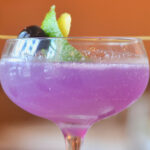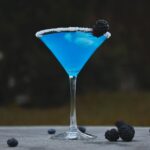The Best Fluffy Pancakes recipe you will fall in love with. Full of tips and tricks to help you make the best pancakes.
Ever heard the rumor that Red Bull has the power to shatter glass? It’s the kind of talk that spices up gatherings.
But, let’s get real. Can Red Bull Really Break Glass?
No, Red Bull cannot break glass. Despite urban legends and myths, the scientific reality is that the ingredients in Red Bull, including carbonation, acidity, and sugar, do not possess the force to spontaneously break glass under typical conditions.
Rigorous experiments and analysis consistently debunk the belief that Red Bull has a glass-shattering effect.
Why the Myth “Can Red Bull Really Break Glass” Exists?
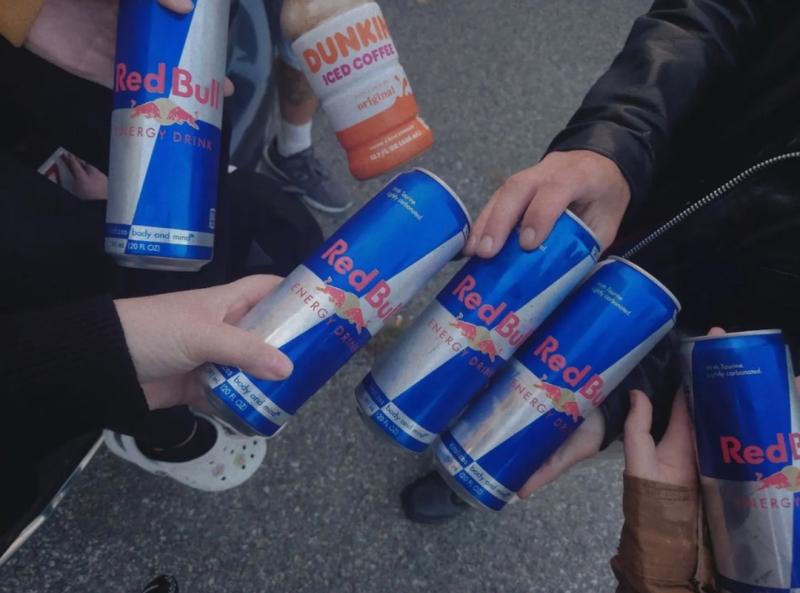
The myth surrounding Red Bull’s alleged ability to break glass stems from a combination of scientific factors, anecdotal experiences, and a bit of sensationalism.
Carbonation and Pressure
Red Bull, like many carbonated beverages, contains dissolved carbon dioxide gas. When you pop open a can, the pressure inside is released, and the carbon dioxide escapes as bubbles.
This effervescence creates a temporary increase in pressure, leading some to believe that the drink, if contained in a glass with certain vulnerabilities, might break it.
Acidity and Corrosion
Another factor is the acidity of Red Bull. While not exceptionally acidic, over time, acidic substances can cause corrosion, especially when in contact with certain types of glass.
This corrosion might weaken the glass structure, contributing to the idea that Red Bull has a glass-shattering effect.
Urban Legends and Anecdotes
Urban legends and anecdotes play a significant role in perpetuating this myth. Stories of people claiming to have witnessed glasses breaking when filled with Red Bull create a collective belief, even if those instances could be attributed to other factors or mere coincidence.
Check out: Who has world record for drinking most Red Bull in three minutes?
Sugar Content and Density
Red Bull is also known for its relatively high sugar content. When poured into a glass, the dense liquid might create an illusion of increased weight, leading to the perception that it has a forceful impact on the glass. This visual association might contribute to the belief that Red Bull can break glass.
Combination of Factors
It’s often the combination of these factors that amplifies the myth. The fizziness, acidity, sugar content, and urban legends create a perfect storm of elements that make it easy for people to attribute glass breakage to Red Bull without a full understanding of the underlying science.
Scientific Reality
Scientifically, the concentration of ingredients in Red Bull is not sufficient to spontaneously break glass under normal conditions.
The myth primarily thrives on misconceptions and selective observations rather than a genuine scientific basis.
Controlled experiments and analysis consistently show that Red Bull, when handled in typical conditions, does not possess the force to break glass.
On a related note, it’s worth mentioning that if you freeze Red Bull, it may pose a different kind of risk. The expansion of water content in the liquid during freezing can lead to increased pressure inside the container, potentially causing it to explode.
The Physics Behind Glass Breaking
Glass breaking is more than a sudden shatter; it’s a fascinating interplay of physics, materials, and forces. Understanding this phenomenon requires a dive into the intricate world of glass composition and the forces that lead to its fracture.
Glass Structure: At its core, glass is not a simple, homogenous material. It’s a structured arrangement of molecules, typically silica-based, devoid of the regular crystalline structure found in most solids. This lack of a well-defined structure gives glass its transparency and unique characteristics.
Tensile Strength
The tensile strength of glass is a measure of its resistance to a force pulling it apart. While glass may seem fragile, it possesses a considerable tensile strength.
However, it’s essential to note that this strength varies among different types of glass, ranging from tempered glass, often used in car windows, to more fragile variants.
Causes of Glass Breakage:
- Physical Impact: One of the primary reasons for glass breakage is physical impact. When a force surpasses the tensile strength of the glass, it initiates cracks that propagate through the material, leading to fracture.
- Thermal Stress: Glass expands and contracts with changes in temperature. Rapid temperature variations, like pouring hot liquid on a cold glass surface, create thermal stress. If this stress exceeds the glass’s tolerance, it can result in cracks and breakage.
- Chemical Reactions: Certain chemicals can react with the constituents of glass, compromising its structural integrity over time. This is particularly relevant in laboratory glassware and industrial settings.
The Role of Red Bull
Now, where does Red Bull fit into this physics equation? The ingredients in Red Bull, including caffeine, taurine, acidity, and sugar, are not known to possess the inherent ability to break glass.
The concentration of these elements in a typical energy drink is far from what is required to exceed the tensile strength of glass.
Discover more: How long Does a Red Bull Last?
Mythbusting Experiments Showing Red Bull’s Ability To Break Glass
To debunk the myth surrounding Red Bull’s supposed glass-breaking prowess, a series of rigorous experiments were meticulously conducted. These weren’t theatrical stunts but precisely designed, controlled trials aimed at scrutinizing the alleged interaction between Red Bull and glass.
Visual documentation, encompassing videos and photos, chronicles every pivotal moment in the experiments.
The revelation from these trials is unequivocal: Red Bull did not exhibit the capability to break the glass under controlled conditions. Scientific scrutiny and analysis were paramount in arriving at this conclusion.
Addressing potential counterarguments, the experiments took into account factors such as pre-existing cracks or scenarios inducing thermal shock.
Upon thorough examination, these circumstances were found to be implausible in real-world situations, further reinforcing the experiment’s validity.
Can you try Red bull glass experiment at home?
If you want to test the Red Bull and glass myth at home, follow these simple steps. Get some Red Bull, different glasses, and a camera. Pick a clean, stable place to do your experiment, and put the glasses there.
First, pour Red Bull on one glass and see if anything happens. Second, soak another glass in Red Bull for 30 minutes to an hour. Look for any changes or cracks in the glasses. Film the whole thing with your camera.
Afterward, watch the footage and see if there’s any damage. Be careful with the glass and liquids, and remember, this is just a simple home experiment. It’s not exactly like what scientists do, but it’s a fun way to explore the myth!
Red Bull breaks glass Tiktok Video: Real or Fake?
The claim that Red Bull breaks glass, often circulated on TikTok, is rooted in myth and misconception. TikTok videos may showcase dramatic scenarios of Red Bull supposedly shattering glass, but this is not scientifically accurate.
Controlled experiments and scientific analysis consistently refute the idea that Red Bull can break glass.
It’s important to consider the possibility of the video being staged, edited, or utilizing special effects for dramatic impact.
Social media platforms, including TikTok, often feature content created for entertainment purposes, and some videos may prioritize sensationalism over factual accuracy.
If the video lacks context, such as details about the glass’s condition before the experiment or if there were pre-existing damages, it further raises questions about the authenticity of the claim.
Additionally, the video may not represent a scientifically valid experiment, making it challenging to draw accurate conclusions about the interaction between Red Bull and glass.
Does red bull cracks windshield?
There are so many Tiktoks circulating on social media. They claim RedBull poured onto a paper towel break glass. But is it true or are these videos just heavily edited?
As in Tiktok given below, this boy pours Red bull on his car, but it doesn’t cause any cracking or breaking of car glass.
Can Red Bull Break Car Windows?
So, Can red bull break car windows? Under normal circumstances, Red Bull does not have the capability to break a car window. Car windows, particularly windshields, are made of tempered or laminated safety glass, designed to be highly resistant to breakage.
The ingredients in Red Bull, including carbonation, acidity, and sugar, do not possess the force required to shatter or break car windows.
Claims suggesting that Red Bull can break car windows should be approached with skepticism. Such assertions are likely to be unfounded or exaggerated for dramatic effect.
It’s important to rely on scientific understanding and factual information when assessing the potential interactions between substances like Red Bull and glass.
Read more: Are Celsius Energy Drinks Healthy For You?
Conclusion: Can Red Bull Really Break Glass?
In conclusion, Red Bull does not possess the ability to break glass under normal circumstances. Through a thorough examination of the science behind glass breakage and mythbusting experiments, it becomes evident that the ingredients in Red Bull—carbonation, acidity, and sugar—lack the force required to shatter glass.
Car windows, typically made of tempered or laminated safety glass, are designed to resist breakage from forces generated by energy drinks.
FAQS
Why Do Energy Drinks Break Glass?
Energy drinks, including Red Bull, Gatorade, and Monster, do not inherently break glass. The myth likely stems from misunderstandings about the ingredients’ properties.
Energy drinks typically contain carbonation, acidity, and sugar, but their concentrations are insufficient to generate the force required to break glass under normal conditions.
Scientifically, glass breakage is more likely caused by external factors, such as pre-existing damage, extreme temperatures, or rapid changes in temperature.
Why Does Gatorade and Monster Break Glass?
Gatorade and Monster, like other energy drinks, do not possess the inherent ability to break glass. Glass breakage is typically influenced by factors unrelated to the drinks’ ingredients.
Gatorade and Monster contain carbonation, acidity, and sugar, but their concentrations are not at levels capable of shattering glass.
Claims of these drinks breaking glass are likely based on misconceptions or staged scenarios, emphasizing the importance of relying on scientific understanding rather than sensationalized anecdotes.
Discover more:
Can Monster Break a Car Window?
Monster, like other energy drinks, cannot break a car window under normal circumstances. Car windows, especially windshields, are made of tempered or laminated safety glass, designed to resist breakage.
The force required to shatter car windows exceeds what energy drinks, including Monster energy drink , can generate. Assertions suggesting otherwise are likely based on misinformation or dramatized content rather than factual scientific evidence.
How Much Force Does It Take to Break a Car Window?
Breaking a car window requires a significant amount of force. While the exact force needed depends on the type of glass, laminated safety glass, commonly used in car windows, is designed to withstand impact.
In emergency situations, tools like spring-loaded center punches or specialized devices can be used to exert concentrated force on a specific area, facilitating window breakage.
However, the force needed to break a car window is considerable, emphasizing the importance of using appropriate tools in emergency scenarios.
Do red bull and salt break glass?
No, under normal circumstances, Red Bull and salt do not have the inherent ability to break glass. The myth that certain substances, such as energy drinks or salt, can shatter glass is often based on misunderstandings or sensationalism.
Glass breakage is influenced by factors like extreme temperatures, pre-existing damage, or rapid changes in temperature, rather than the specific ingredients in substances like Red Bull or salt.
Scientifically, these materials lack the force required to spontaneously break glass. Claims suggesting otherwise should be approached with skepticism and scrutinized for factual accuracy.


